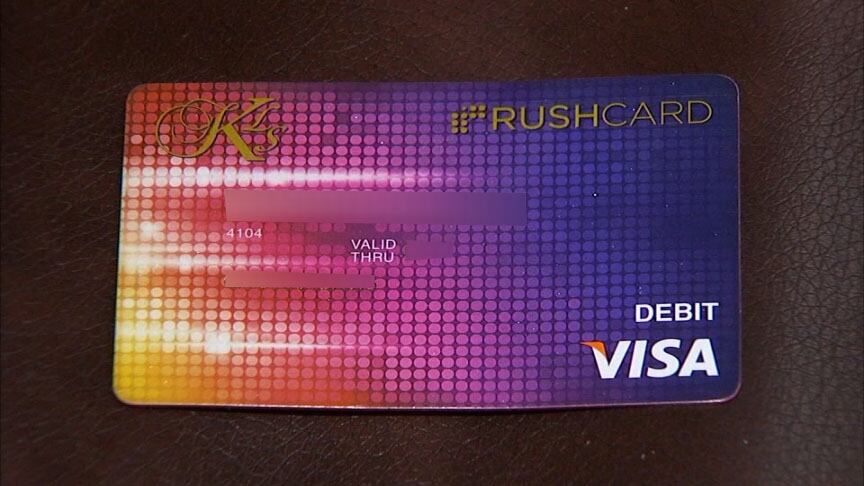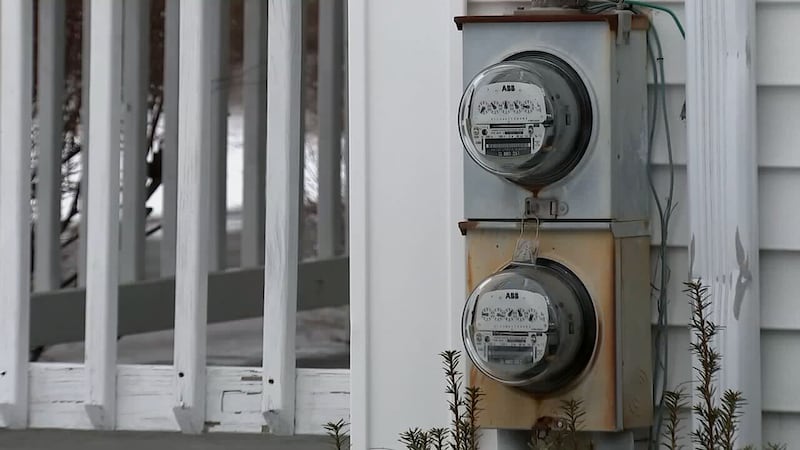ATLANTA (MyFoxBoston.com) -- Russell Simmons has said the idea for his pre-paid debit card RushCard was born out of a desire to help those who wouldn’t or couldn’t use the traditional banking system keep their money safe and have a cheap and convenient way to pay for things. Customers, the hip-hop mogul promised, could have paychecks or government assistance payments deposited on the cards which could be used anywhere a Visa credit or debit card was accepted.
However, after two weeks of technical problems that kept customers from accessing money deposited on their cards, Simmons has found himself defending his company and facing a federal investigation into its practices.
Simmons, who founded UniRush, the financial services company that issues the RushCard, has scrambled to assure the 1.5 million people who hold the cards that their money is safe and his intentions are good.
The card, which was among the first prepaid debit cards ever issued, allowed users to deposit money but skip most fees associated with traditional bank accounts for which they often could not qualify. Since Oct. 11, the system has been plagued by technical problems, Simmons says, resulting in RushCard account users being blocked or finding their cards are posting a zero balance, despite deposits having been made.
a personal message from me to our @RushCard members: https://t.co/GLKgrEnFAk
— Russell Simmons (@UncleRUSH) October 14, 2015
While Simmons have told customers via Twitter that the technical problems have been resolved and the correct balances restored to the cards, the fact that "under banked" customers had no access to their money has raised concerns from other corners of the financial market.
an update for our @RushCard customers. pic.twitter.com/gt465LD7vQ
— Russell Simmons (@UncleRUSH) October 26, 2015
Here are a few things to know about the card and the recent problems people have had with it:
What is it: The RushCard Live is a reloadable prepaid Visa debit card that you can use anywhere Visa debit cards are accepted, the company's website says. "The card is reloadable and you can receive a personalized card with your name on it. Use it to shop online, pay bills, and make all your purchases. Your registered card is safer than cash," the website promises.
How does it work: The RushCard has two plans to choose from – an Unlimited Plan where you get unlimited signature and PIN transactions for a monthly fee of $7.95 – or $5.95 for every month you are enrolled and using direct deposit; and a Pay As You Go Plan where you pay $1 for each purchase up to a maximum of $10 per month. Both plans have associated fees ranging from .99 cents for a card-to-card transfer, to $30 for expedited cash.
What happened two weeks ago: Problems with the RushCard began late on Oct. 11 when company officials began hearing about issues following a technical upgrade. "During this process, many of our customers were adversely affected when the technology that was used to transition their accounts did not work as planned," RushCard CEO Rick Savard said on Oct. 12. "RushCard is working around the clock to resolve all of these matters."
What happened after that: According to a story in the Consumerist, following the access problems of the past two weeks, nearly a dozen consumer groups joined to pen a letter urging the Consumer Financial Protection Bureau, Federal Reserve Board and the Office of the Comptroller of the Currency to look at a plan for consumer protections for the country's "under banked."
“All steps must be taken to ensure that such a problem does not happen again,” the group wrote of the RushCard issues. “It could be devastating for any family to be unable to access expected funds. But the families who rely on prepaid cards tend to have far fewer resources than other consumers. ... Prepaid cardholders need as much or more robust protection as the holders of bank accounts,” the letter went on. “But in our current system, they have less. No federal agency regularly examines prepaid card companies or payment processors for either consumer protection or safety and soundness issues.”
I created this industry for people who needed access I'm proud of this innovation and the lives it has changed #rushcard
— Russell Simmons (@UncleRUSH) October 26, 2015
How is the government involved: The federal Consumer Financial Protection Bureau is investigating Unirush and the issues that led to people being denied access to their money, according to a story from Rolling Stone.
Simmons continues to defend his card and says he welcomes any investigation that will "clear his name" and show that the card has "been best in class by top consumers groups for years."
let's clear my name and have government and others "investigate" #rushcard it had been best in class by top consumers groups for years
— Russell Simmons (@UncleRUSH) October 27, 2015
And the lawsuit: So far, five users have filed a class action lawsuit claiming fraud against Simmons and his partners in the company. The claimants in the suit say they were unable to pay rent and utilities bills and could not buy food because they had no access to their accounts.
Russell Simmons’ RushCard is being investigated after thousands of customers lost access to their money https://t.co/LxN9GTNV8i
— Rolling Stone (@RollingStone) October 23, 2015
Cox Media Group






